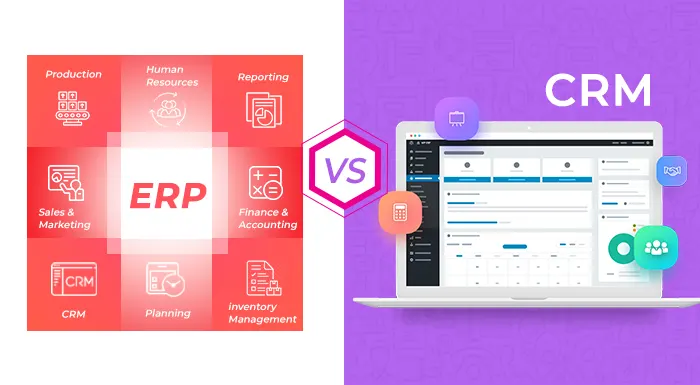A customer relationship management (CRM) system is ultimately a software platform. It’s something that many businesses within all industries use to oversee and administrate their customer interactions–and typically includes information on both current customers as well as prospective.
Having a CRM platform is highly advantageous to a business’s overall operations and can strengthen customer relationships–but indeed, does come with inherent risk as it tends to store considerable amounts of data and classified information. As such, ensuring compliance with regulations is necessary to avoid legal problems, reputational damage, and financial penalties.
Understanding CRM Compliance: Key Legal Frameworks
There are several key regulations a business must be aware of as it relates to CRM compliance, including:
- General Data Protection Regulation (GDPR): This is a law that was formed in the European Union (EU). GDPR specifically regulates how personal data of people who reside in the EU is used, processed, and handled. Presently, it’s the world’s most robust security and privacy law. And while it originates in the EU, it also applies to companies and organizations located outside of the EU that serve EU residents.
- California Consumer Privacy Act (CCPA): This law provides consumers living in California control over how their personal information is collected and ultimately used by for-profit businesses. The CCPA defines personal data as anything related to Internet activity, health and financial information, and geolocation data.
- Health Insurance Portability and Accountability Act (HIPAA): This law is related to protecting the privacy and overall security of protected health information (PHI) and is regulated by the United States Department of Health and Human Services (HHS). HIPAA applies specifically to healthcare organizations and requires them to undergo HIPAA audit to ensure compliance with its standards.
- Federal Trade Commission (FTC) Guidelines: These are guidelines designed to help marketers not make advertising claims that are misleading or false. For instance, if an influencer is promoting a brand or product and are receiving personal or financial gain because of it, then they must disclose that.
Of course, other legal frameworks do exist, so it’s necessary to be well-informed of the laws and regulations that apply to your enterprise.
Core Compliance Requirements for CRM Systems
The type of business you run might vary, be it a Sole Proprietorship, a Corporation, or an LLC–and that could impact how you manage and administer your CRM platform. For instance, the requirements to form an LLC in Florida and compliance measures related to CRM systems are specific to the Sunshine State, so you will want to play close attention to where you operate your company. However, here are some general compliance requirements to be aware of:
- Data Collection and Consent: Businesses must gain the consent of end users when collecting data, and consent management tools must be integrated within a CRM platform.
- Data Storage and Security: A company should have a set of best practices they use to ensure data is securely stored. Additionally data backup and recovery protocols should be instituted.
- Access Control and Role-Based Permission: Only authorized users should be able to access confidential or sensitive data. Specific permissions should be in place so unauthorized parties or bad actors cannot gain access. To manage these permissions effectively, businesses should store administrative credentials in a secure password vault to prevent unauthorized credential sharing.
- Data Minimization and Retention: Only data that is absolutely necessary should be collected–and retention policies should align with legal regulations so that data is only stored for as long as needed.
- Right to Access, Portability, and Deletion: A CRM platform should enable an end user to access, delete, or transfer their data based on their own individual preferences.
Compliance Tools and Features in CRM Systems
Depending on the CRM platform your business decides to use, there are a variety of compliance tools and features available to enable you to adhere to some of the regulations we have noted, such as GDPR and CCPA. Some common compliance tools and features include:
- Data Storage and Anonymization: These features help companies manage customer data while remaining in compliance with privacy laws.
- Consent Administration: A feature that ensures a consumer is consenting to their data being stored and/or processed.
- Audit Trails: Related to reporting and monitoring, an audit trail keeps a detailed log of how data is accessed and/or modified.
Quoting Software: For sales-driven organizations, quoting software within the CRM helps generate and manage pricing proposals securely. It ensures data consistency, limits unauthorized edits, and aligns with compliance standards for audit trails and data retention.
Some other common compliance tools and features related to CRM systems include task management, lead management, contact management, marketing automation, Invoicing & billing software, third-party integration, and reporting and analytics. For businesses that work closely with resellers, distributors, or affiliates, partner relationship management (PRM) software is also critical. It provides structured access controls, deal registration workflows, and audit logs to ensure your partner ecosystem complies with privacy and data handling standards. When deciding upon a CRM platform, it’s important to have an idea about what factors specifically apply to your business and how you plan to harvest, use, and store the sensitive data of your customers and prospects.
Common CRM Compliance Challenges
There are some very common CRM compliance challenges that businesses must be aware of, including:
- Inadequate data security measures
- Lack of user adoption
- Outdated data
- Poor data quality
- Duplicate records
- Non-compliance with regulations related to data privacy
- Improper access controls that lead to data breaches
However, there are ways to overcome these challenges within your organization, such as:
- Ensuring your company institutes robust data cleansing procedures
- Implementing employee training on proper approaches to data handling
- Scheduling and conducting regular data audits
- Confirming strong access control
- Guaranteeing all data is encrypted
- Remaining up to date on all relevant privacy laws to confirm adherence
To ensure your organization is able to effectively overcome any issue or challenge it may face related to CRM compliance, it is wise to seek counsel from a data compliance specialist, business consultant, or legal professional.
CRM Compliance Best Practices
Every business wants to remain on the right side of the law and in the good graces of their customers and prospects. As such, consider implementing these best practices at your company:
- Make sure your data is always encrypted using protocols such as SSL/TLS (for when data is in transit). Have encryption mechanisms implemented as well for stored data (also called data at rest).
- Put strict access controls in place so only authorized users can view and/or modify data. Additionally, make sure those access control remain up to date and review periodically to confirm that permissions remain relevant based on roles and responsibilities.
- Authentication methods should be implemented so that the identity of anyone logging into your CRM system is verified and legitimate. Multi-factor authentication (MFA) is a good approach to ensure an added layer of security.
- Only collect and store data that is absolutely necessary to business operations.
- Proactively review and audit your CRM system on a regular basis and ensure no vulnerabilities are present.
- Facilitate employee training on data security and privacy matters. Explain why it is necessary to be responsible when handling sensitive customer information.
- If you work with third-party vendors that have access to your CRM platform, confirm they adhere to the same standards that your organization follows. Thoroughly assess their data handling processes and procedures and ensure alignment.
Legal Compliance in CRM Systems is Non-Negotiable
To protect your organization’s longevity and reputation both in the short and long-term ensuring CRM compliance is a must. By making this a business priority and following the tips mentioned in this article, you can achieve best-in-class CRM functionality, protect customer data, and realize ongoing trust.








